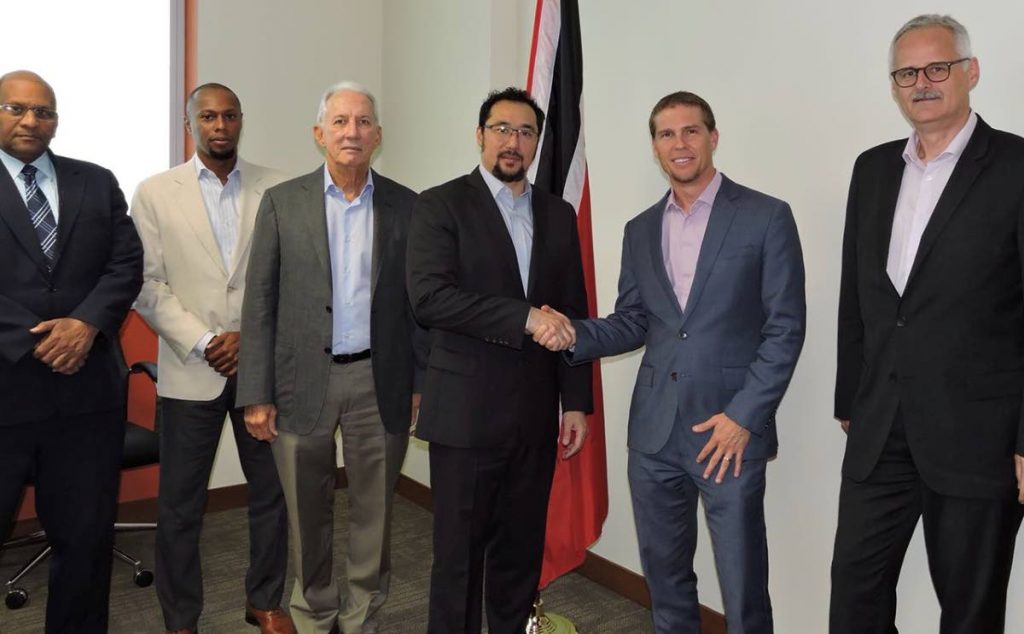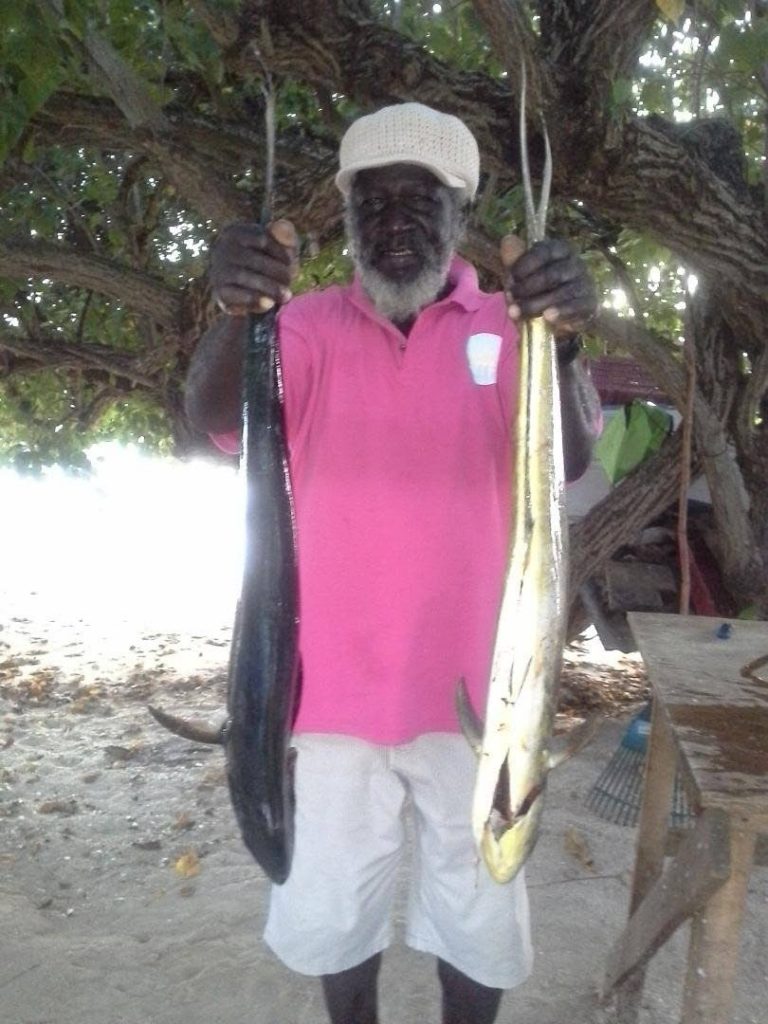Mayday

With its sun kissed beaches, scenic landscape and rich indigenous tradition, Tobago has long been considered an ideal tourist destination.
But the lingering effects of the economic downturn (Government has since given TT a positive outlook in its mid-year review), a terribly inconsistent sea bridge and a seemingly ineffective marketing strategy, has made some stakeholders wary about even making pronouncements about Tobago’s future.
From the market vendor to the professional, the chorus was the same: something must be done to revive Tobago’s struggling economy.
“The sea bridge mash up business in Tobago over the last year,” the owner of a popular bar in Bon Accord told Business Day.
“I used to sell about 500 cases of beer for Easter and for jazz but if ah sell 40 cases (over the period), ah sell plenty.”
Another businessman, who runs a nearby convenience store, agreed that the woes on the sea bridge have caused many businesses to close.
“Plenty business close down in Canaan. When you go in Penny Savers Supermarket (situated along Milford Road), you will see how many businesses close down in the building.”
Business Day understands that an estimated 34 small and micro-businesses in Tobago have ended their operations between September 2017 and March 2018 - a reality that has prompted calls, in some quarters, for an urgent Government bailout initiative to effect a turnaround.
The Tobago Hoteliers and Tourism Association (THTA), whose members also have been severely impacted by the sea bridge fiasco, used the recent Tobago Jazz Experience as an example of how badly occupancy rates on the island were affected.

“From what we have found out already, the jazz occupancy would have been about 30 per cent.
“The feedback that we got is that there are a lot of people who wanted to come to the jazz but they weren’t sure they would have been able to go back to Trinidad after the show,” said THTA vice-president Carol-Ann Birchwood-James.
She said there was a crisis of confidence in relation to both the sea and air bridge.
“Until that boat (TT Spirit) is running for about three four months without any hiccups, we are going to be facing that kind of problem. People want to make sure that when they come, they can go back.”
Birchwood-James, a third-generation entrepreneur, agreed that the economy was in bad shape.
“At this point in time, I would say it is not good at all. People are suffering. It’s a whole year we have had sea and air bridge problems.
“The mainstay of the economy is tourism and if your international tourism is down and there is a collapse of your domestic tourism, you are going to feel the effects on the economy.”
Saying that a lot of people were employed within the sector through fishing, agriculture, restaurants and guesthouses, Birchwood-James said the association is hoping for a turnaround in the island’s economic fortunes.
Today, the THTA, in collaboration with the Tobago House of Assembly (THA), is expected to launch a series of three road shows in Trinidad, beginning at Cara Suites Hotel, Claxton Bay.
Tomorrow, the show heads to C3 Centre, San Fernando and Gulf City, La Romaine, on Saturday.
“We hope that with the new boat coming (Galleons Passage), some more road shows, money for international marketing, that we can start that whole resurgence of the economy of Tobago,” said Birchwood-James.
Economist Anslem Richards, who has studied Tobago’s economy over the years, also has noted the impact of an ineffective sea bridge on the island’s economy.
“The Tobago economy is totally in shambles. There is no question about that. The sea bridge fiasco has really destroyed the Tobago economy.
“When you look at all the performance indicators: tourism; consumer spending; and complaints from Tobago business owners, the Tobago economy has hit rock bottom and mainly because of the disruptive nature of the sea bridge situation over the past year.”
However, Richards also blamed other factors for the state of affairs.
“The Government sector in Tobago has contracted because they don’t have the substantial amount in government allocation so that the employment programme of the Government, the inflationary employment practices, cannot be sustained,” he claimed.
The situation, Richards said, has caused the Tobago House of Assembly (THA), the island’s largest state employer, to cut back on its workers.
“As a matter of fact, in the URP (Unemployment Relief Programme), people are now working one fortnight per month and that has a very telling impact on persons working under the minimum wage.
“So, when you put all of these factors together, one needs no argument to come to the conclusion that the Tobago economy is really in shambles at this particular point in time.”
Outside of tourism, two of Tobago’s major sectors - fishing and agriculture -also have taken a beating.

Johnny Baptiste, president of the South-West Tobago Fishing Association, said the situation was dire.
“At this point in time, it is critical because we not catching fish at all,” he told Business Day.
“As a matter of fact, men going out, coming back in and have to go out the other day, buy gas and still not catching fish. So, it is really difficult. If they catching fish, is just like one or two, not like how we used to really catch fish in the earlies.”
Baptiste blamed the problem on drilling and seismic surveys as well as the fact that fishermen from Venezuela and Barbados were venturing into local waters.
“The Venezuelans coming up into our waters and Bajans coming down into our waters also. They have bigger boats than we have, so they get to spend more time in the sea and are reaping the fishes that are out there. That is a real challenge we have.”
He said the TT government must hold discussions with officials from these islands to resolve this issue.
Rebates for the purchase of gas, he said, also was a major problem, he said.
“I understand that some of the guys in Trinidad get rebates but Tobago don’t get rebates at all. So, we have to spend much more money to catch little or no fish.”
The south-west fishing region, comprising about 175 fishermen, covers areas that include Culloden on the north-western side of the island to Kilgwyn Bay, Bon Accord, on the south-western side.
Baptiste said their pleas for assistance have gone unheeded.
“We have been talking to the THA over and over and even the Coast Guard not doing anything about this.”
So bad is the situation, Baptiste said some of the association’s members have given up fishing altogether and sought other forms of employment, like carpentry and masonry.
“Some of them sell their boats and go into reef boats and doing tours. It is as serious as that.”
Baptiste, who started fishing with his father at the age of six, said money needed to be pumped into the industry.
“We have to encourage the fishermen to go back to sea.”
Colin Reynold, of the Goldsborough Farmers’ Association, also believes more can be done to promote Tobago’s declining agriculture sector.
“Very little has been done so far for whatever reason. Not much of anything is going on,” he said.
Reynolds said the temporary facility constructed for farmers near to the Shaw Park Cultural Complex offered little accommodation for farmers.
“I would imagine that when you are building a market, the farmers would be the primary consideration. But, there is a lot of preoccupation with clothing booths and places to cook and very little consideration for farmers.”
Reynolds said the focus should instead be on the production side of agriculture to reduce the amount of food coming from Trinidad.
“But that is not really on the agenda. I don’t want to be critical of any government but I don’t really know what is the agenda.”
Reynolds said farmers were feeling the pinch.
“There has definitely been a massive reduction in people buying goods right now because people are unsure about the future. They don’t know what is happening.
“They don’t have money and people are getting paid late on a regular basis so they are reluctant to go out there and spend money as they used to.”
Reynolds also complained about what he considered to be the continued reliance on goods from Trinidad.
Last week, Finance Minister Colm Imbert announced the THA will receive an additional $20 million to improve agricultural access roads in Tobago.
Imbert explained the sum was intended to “open up areas for agriculture and to promote and boost agricultural production.”
He said the move was necessary, especially with the imminent arrival of the Tobago Sandals, “which will require a lot of indigenous agricultural products.”
However, Reynolds regarded this development as unfortunate.
“This may very well be a political agenda because they are spending money now because they getting ready for elections. But this is really not how it is supposed to be.”
Reynold, whose organisation represents about 20 farmers, claimed Tobago also did not have a proper marketing data base.
“There has been very little work done with respect to statistics in this area.”
Reynold said reviving agriculture would take commitment from all of the key players in the sector.
“There has been a lot of lip-service to agriculture but there has not been any commitment to agriculture production.
“Some of the technocrats are very keen to move agriculture forward but there is always that restriction and that is a big problem.”
Richards, who once served as policy and research adviser to former THA chief secretary Orville London, envisaged it would take five years of affirmative action to turn around Tobago’s economy.
Firstly, he said, the conversation must include international trading access.
“We have to build in Tobago and international trading hub that speaks to an international containerised cargo port where people can import directly from other source countries as opposed to trans-shipping in Trinidad and dealing with the agents in Trinidad. That will cut costs of operations,” he said.
Richards said there also must be more direct flights to Tobago, with more cargo and passenger capacity, to ensure that certain items are moved more quickly into the destination.
He said Tobago also was poised to engage in a programme of renewable energy.
“We have to start diversifying our energy portfolio if we are talking about diversification of the economy and building sustainability.
“We can’t concentrate, almost exclusively, as we are now, on natural gas and oil to generate our electricity.”
Apart from economic growth, Richards also called for institutional strengthening within organisations to facilitate greater efficiency.
“That is critical and where I would look to measure growth. That is where the real sustainable growth is because those things will manifest itself in greater production. That is really the core of the growth I am looking for in Tobago.”
In moving ahead, Richards said the political and constitutional relationship between Trinidad and Tobago must be revisited.
“We have to have greater direct influence and control over some of the critical decisions that have to be made in the interest of Tobago’s future.”
Richards used the proposed, billion-dollar Sandals project as an example.
“We have the Sandals deal that is being initiated now by the central government. But we have our island Government, even though it may be constitutionally subordinate.
“But from a functional form of how a Government should operate, you cannot have a major development like this on the island and there is no secretary, no assistant secretary, no individual from the Government side in Tobago sitting in on the negotiating team.”
Describing the project as “a slap in Tobago’s face,” Richards said it “stinks of colonisation.”
“What the central Government is expressing by its action is that their interests are the interests of Tobago. That may not necessarily be so. And that is why you need somebody from Tobago bear on any negotiation and agreement for this project.”
Claude Benoit, chairman of the Tobago Chamber of Industry and Commerce, said the committee to address the state of the island’s economy, should be in place by tomorrow.


Comments
"Mayday"